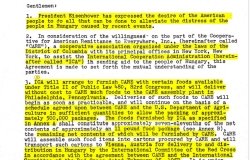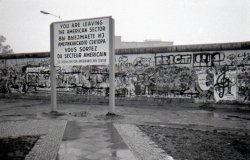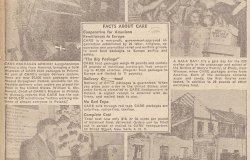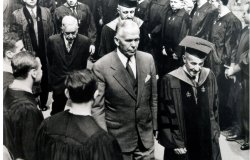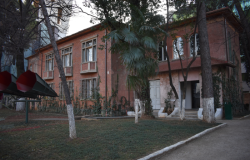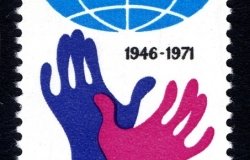40 Years Later: New Interpretations of the Six Day War
Overview
6th Floor Flom Auditorium
Woodrow Wilson Center
1300 Pennsylvania Ave NW
Washington, DC 20004
2:00 p.m. – Opening remarks by Christian Ostermann
2:15-3:45 p.m. New Approaches on the Six-Day War, Part I
Isabella Ginor, Gideon Remez, Foxbats Over Dimona: The Soviets' Nuclear Gamble in the Six-Day War
Yacoov R'oi, The Soviet Union and the Six-Day War
3:45 p.m. – Coffee Break
4:00-5:00 p.m. New Approaches on the Six-Day War, Part II
with comments by Richard Parker and Guy Laron
Q & A with the Audience
5:00-5:30 p.m. Jordan Baev, "Eastern Europe and the Arab-Israeli Conflict: Evidence from the Bulgarian Archives"
5:30 – Reception and Book-signing (in the 6th Floor Board Room)
Participants
Isabella Ginor is a fellow of the Harry S. Truman Research Institute for the Advancement of Peace at the Hebrew University of Jerusalem. She was born in Ukraine and since 1967 has resided in Israel, where she is a frequent commentator in the Israeli and foreign media and an award winning journalist. She currently resides in Jerusalem.
She co-authored Foxbats Over Dimona: The Soviets' Nuclear Gamble in the Six-Day War with Gideon Remez in 2007. The book analyzes newly available documents and testimonies from the former Soviet Union and uses them to give an account of the Six-Day War that is startlingly different from all previous histories of the conflict. The book paints a disturbing picture of Cold War aggression, deception, and calculated willingness to precipitate a global crisis.
She is also the author of The Russians Were Coming: The Soviet Military Threat in the 1967 Six-Day War which appeared in the December 2000 issue of MERIA and The Cold War's Longest Cover-Up: How And Why The USSR Instigated The 1967 War which appeared in the September 2003 issue of MERIA.
Gideon Remez is a well-known and award winning radio and print journalist in Israel. He fought in the Six-Day War and was a frontline correspondent in the Suez Canal Theater of the 1973 Yom Kippur War. He currently resides in Jerusalem.
He co-authored Foxbats Over Dimona: The Soviets' Nuclear Gamble in the Six-Day War with Isabella Ginor in 2007. The book analyzes newly available documents and testimonies from the former Soviet Union and uses them to give an account of the Six-Day War that is startlingly different from all previous histories of the conflict. The book paints a disturbing picture of Cold War aggression, deception, and calculated willingness to precipitate a global crisis.
Yacoov R'oi is a professor in the History Department at Tel Aviv University and an expert in the history of Central Asia, Modern Russia, and Islam. He received his PhD in 1972.
He is the author of Soviet Decision Making in Practice: The USSR and Israel 1947-1954 as well as a forthcoming book on the 1967 war from the Woodrow Wilson Center Press.
Jordan Baev holds a Ph.D. in Contemporary History from the Bulgarian Academy of Sciences (1982) and is an Associate Professor in International History and Senior Research Fellow in Security Studies at Rakovsky Defense and Staff College in Sofia. Since 2000 he has also been a Visiting Professor in International Relations and Conflict Studies at New Bulgarian University. Dr. Baev serves as Vice-President of the Bulgarian Association of Military History and Coordinator of the Bulgarian Cold War Research Group since 1998. His academic record comprises international research fellowships at the Woodrow Wilson International Center for Scholars, Central European University in Budapest, National Defense College in Stockholm, the Norwegian Nobel Institute in Oslo, and National Defense University in Washington DC. He has directed research projects co-sponsored by the International Parallel History Project on NATO and the Warsaw Pact, the Cold War International History Project, the European Commission, and the United States Institute of Peace. In the last 25 years he has written over 140 publications, published in eleven languages, among them several books and documentary volumes on Cold War military and political history.
Ambassador Richard Bordeaux Parker was born in 1923 in the Philippines, where his father was stationed in the United States Army. He earned a Bachelors of Science in General Science and a Masters of Science in Citizenship Education from Kansas State University. After serving as an infantry soldier during World War II, Parker joined the US Foreign Service in 1949. His first tour was spent in Sydney, Australia. He then focused his career on the Middle East, holding a number of posts in Israel, Jordan, and Egypt. In addition, Parker served as ambassador to Algeria (1974-1977), Lebanon (1977), and Morocco (1978-1979).
Fluent in Arabic, he has written or edited seven books on subjects concerning the Middle East. He retired from the U.S. Foreign Service in 1981 and became the editor of The Middle East Journal from 1981 through 1987. In addition to his diplomatic career, Parker taught at the University of Virginia, Johns Hopkins University, and Lawrence University. He served as the first president of the Association for Diplomatic Studies and Training from 1986-1989. He is also a member of several organizations including the Advisory Council on Near East Studies at Princeton University, the American Academy of Diplomacy, the Cosmos Club, the Council on Foreign Relations, and the Middle East Institute. In June, 2004, he received the American Foreign Service Association's lifetime Contributions to American Diplomacy award. Richard B. Parker is married with four children and lives in Washington, DC.
Hosted By

Cold War International History Project
The Cold War International History Project supports the full and prompt release of historical materials by governments on all sides of the Cold War. Through an award winning Digital Archive, the Project allows scholars, journalists, students, and the interested public to reassess the Cold War and its many contemporary legacies. It is part of the Wilson Center's History and Public Policy Program. Read more

History and Public Policy Program
The History and Public Policy Program makes public the primary source record of 20th and 21st century international history from repositories around the world, facilitates scholarship based on those records, and uses these materials to provide context for classroom, public, and policy debates on global affairs. Read more

Middle East Program
The Wilson Center’s Middle East Program serves as a crucial resource for the policymaking community and beyond, providing analyses and research that helps inform US foreign policymaking, stimulates public debate, and expands knowledge about issues in the wider Middle East and North Africa (MENA) region. Read more
Thank you for your interest in this event. Please send any feedback or questions to our Events staff.
